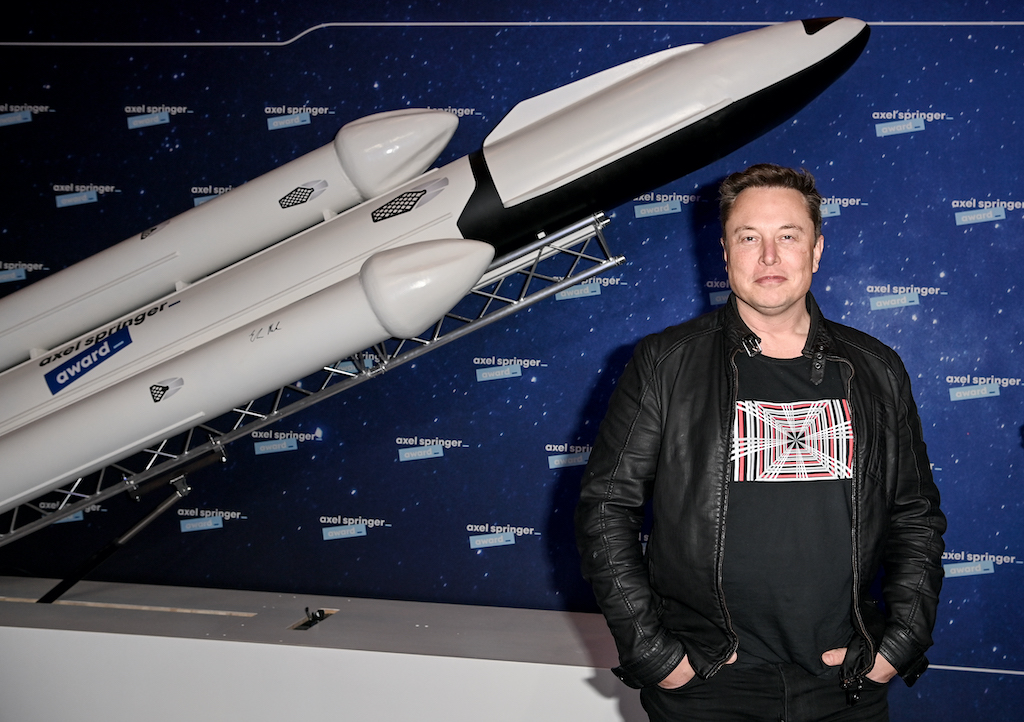zoomacademia.com – Elon Musk is one of the most influential and polarizing figures of the 21st century. Known for his ambitious projects, cutting-edge companies, and bold vision for the future, Musk has earned a reputation as a serial entrepreneur and a technology innovator. His ventures span across various industries, from electric vehicles to space exploration, artificial intelligence, and even brain-computer interfaces.
Born in South Africa in 1971, Musk’s journey to becoming one of the richest people in the world is marked by relentless ambition, ingenuity, and a willingness to take risks. Let’s take a deeper look at the life, achievements, and vision of Elon Musk.
Early Life and Education
Elon Reeve Musk was born on June 28, 1971, in Pretoria, South Africa. His father, Errol Musk, was an electromechanical engineer, and his mother, Maye Musk, was a model and dietitian. From a young age, Musk displayed an aptitude for technology and engineering, building his first computer at the age of 10. His early interest in programming led him to create and sell a video game called “Blastar” when he was just 12 years old.
Musk’s academic journey took him from South Africa to Canada, where he attended Queen’s University in Ontario. He later transferred to the University of Pennsylvania in the United States, earning degrees in both economics and physics. Musk’s intellectual curiosity and passion for technology drove him to pursue ambitious goals from an early age. He moved to California in 1995 to attend Stanford University but dropped out just two days later to pursue entrepreneurial ventures in the tech world, a decision that would ultimately reshape his future.
The Road to Success: Zip2, PayPal, and Early Ventures
Musk’s entrepreneurial career began with his first company, Zip2, which he co-founded with his brother Kimbal in 1995. Zip2 was a software company that provided online business directories and maps for newspapers. In 1999, Compaq acquired Zip2 for nearly $300 million, providing Musk with his first taste of financial success.
Next, Musk went on to co-found X.com, an online payment company, in 1999. X.com later evolved into PayPal, a widely used digital payments platform. In 2002, eBay purchased PayPal for $1.5 billion in stock, and Musk made an estimated $165 million from the deal. This success set the stage for Musk’s future endeavors, as he sought to pursue even more ambitious projects.
Revolutionizing the Automobile Industry: Tesla
Musk’s most prominent and widely recognized achievement is his role in transforming the electric vehicle (EV) industry through Tesla, Inc. Founded in 2003 by engineers Martin Eberhard and Marc Tarpenning, Tesla’s mission was to produce electric cars that could compete with traditional gasoline-powered vehicles. Musk joined Tesla in 2004 as the company’s largest investor and became its CEO in 2008.
Under Musk’s leadership, Tesla revolutionized the automotive industry by producing high-performance electric vehicles that not only challenged the status quo but also demonstrated that EVs could be desirable, practical, and even luxurious. Tesla’s flagship models, including the Model S, Model 3, Model X, and Model Y, have helped push the company to the forefront of the EV market.
Tesla has also led the charge in battery technology, with its innovations in energy storage and development of the Gigafactory, a massive manufacturing plant dedicated to producing electric vehicle batteries at scale. The company’s success in the automotive industry has made Musk one of the wealthiest individuals in the world, while simultaneously pushing the entire industry toward a more sustainable future.
Space Exploration: SpaceX
Another area where Musk has made an indelible impact is in space exploration through his company SpaceX, founded in 2002. Musk’s ambition to reduce the cost of space travel and make life multi-planetary has led to groundbreaking achievements, including the development of the Falcon 1, Falcon 9, and Starship rockets.
One of SpaceX’s most significant achievements came in 2012 when the company’s Dragon capsule became the first privately funded spacecraft to deliver cargo to the International Space Station (ISS). This marked a new era in space exploration, where private companies could compete with government agencies in the pursuit of space travel.
SpaceX is also pioneering the development of reusable rockets. The Falcon 9’s ability to land vertically after launch has dramatically reduced the cost of space travel and has been widely regarded as a major innovation in the aerospace industry. Looking toward the future, Musk’s ultimate goal with SpaceX is to establish a human colony on Mars, creating a backup plan for humanity in the event of a global catastrophe.
Neuralink and The Boring Company
In addition to his ventures in electric vehicles and space exploration, Musk has also sought to push the boundaries of human technology and infrastructure.
Neuralink, founded in 2016, is a neurotechnology company focused on developing brain-machine interfaces (BMIs) to help treat neurological disorders and potentially enhance human cognitive abilities. The company aims to create devices that could help people with conditions like paralysis, and eventually enable a closer connection between the human brain and computers. While Neuralink’s technology is still in the early stages, Musk believes that advancing the integration of artificial intelligence with the human brain could help humanity thrive in an increasingly AI-driven world.
The Boring Company, founded in 2016, is focused on revolutionizing urban transportation. Musk has long been vocal about his frustration with traffic congestion, and he proposed creating underground tunnel systems to alleviate congestion and create a new mode of high-speed transit. The company’s Loop system is designed to transport people in autonomous electric vehicles through tunnels at high speeds, cutting down on travel time and reducing surface-level traffic.
Controversies and Public Persona
Despite his success, Musk has often found himself at the center of controversy. His outspoken and sometimes erratic behavior on social media, particularly on Twitter (now rebranded as X), has led to both praise and criticism. Musk’s tweets, ranging from bold declarations to controversial comments, have impacted Tesla’s stock price, led to regulatory scrutiny, and sometimes attracted public backlash.
Musk’s leadership style is also seen as unconventional. Known for his hands-on approach and high expectations of employees, he is often described as a demanding and visionary leader. Critics have raised concerns about the working conditions at Tesla’s factories and the intense pressure placed on employees to meet ambitious production targets.
Despite these controversies, Musk’s determination and ability to achieve his grand visions have earned him a dedicated following of supporters who admire his drive to change the world.
The Future: Artificial Intelligence and Mars Colonization
Looking ahead, Musk’s ambitions continue to stretch the boundaries of what’s possible. One of his most significant concerns is the development of artificial intelligence (AI). Musk has frequently warned about the potential dangers of AI and its capacity to surpass human intelligence. He has advocated for government regulation of AI to ensure that its development is done in a safe and controlled manner. Musk’s thoughts on AI are intertwined with his vision for neural augmentation, where humans and machines can work in harmony to avoid being left behind by AI’s rapid advancement.
Musk’s ultimate dream remains to make humanity a multi-planetary species, with Mars serving as a potential “second home” for humanity. Through SpaceX, Musk hopes to make space travel more accessible and pave the way for human colonization of Mars. The development of the Starship rocket, capable of carrying large numbers of people to Mars, is a key step in making this vision a reality.
Conclusion: A Legacy of Innovation
Elon Musk’s legacy is still unfolding, but there’s no denying that his influence on the technology, automotive, space, and energy sectors is profound. His work has not only transformed industries but has also sparked global conversations about sustainability, space exploration, and the future of human civilization. Whether admired as a visionary or criticized for his polarizing approach, Musk’s impact on the world is undeniable. As he continues to push the boundaries of innovation, it’s clear that Musk is not just building companies—he’s building a future.







